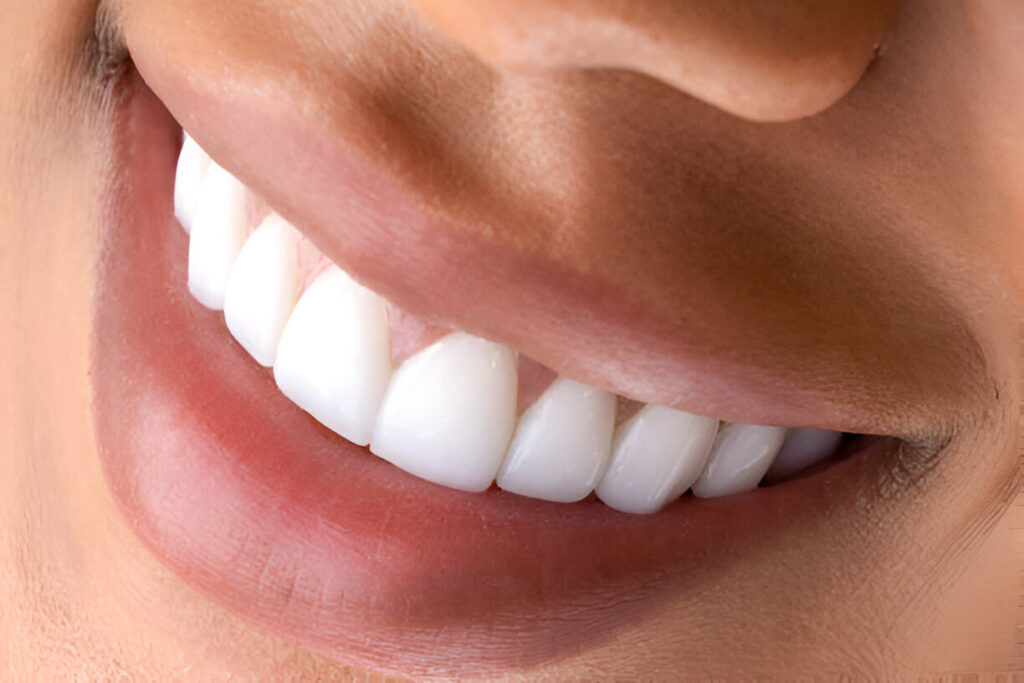Teeth Whitening in St Helens
Looking for brighter, whiter teeth? Affordable Teeth whitening in St Helens offers safe and professionally supervised treatments that noticeably enhance your smile. Whether you’re dealing with surface stains or deeper discolouration, there’s a solution tailored to your needs right here in town.
What is Teeth Whitening?
Teeth whitening is a cosmetic dental procedure that lightens the colour of your teeth using bleaching agents or stain-removing methods. The goal is to remove stains and improve overall dental aesthetics for a more radiant smile.
How Do Teeth Become Discoloured?
Tooth discolouration is caused by a variety of intrinsic and extrinsic factors that impact the natural whiteness of teeth.
Extrinsic Discolouration
This is staining on the outer layer of the teeth, typically caused by foods, drinks like coffee and tea, tobacco use, or poor oral hygiene.
How long do teeth whitening results last in St Helens?
Intrinsic Discolouration
These are deeper stains that develop inside the tooth, often due to ageing, trauma, certain medications, or excessive fluoride exposure during childhood.
Who Can Benefit from Teeth Whitening?
Most people with healthy teeth and gums can benefit from teeth whitening. Ideal candidates include those with yellow-toned teeth, individuals preparing for a big event such as weddings, and anyone simply looking to revitalise their smile. Whitening may be less effective on teeth with grey or brown hues, so a dental assessment can help determine your suitability.
Is Teeth Whitening Safe?
When performed under professional supervision or following a dentist-approved home plan, teeth whitening is generally safe. It is essential to have an initial consultation to check for issues like gum disease or tooth decay that may need treatment beforehand.
Are There Any Side Effects?
Some people may experience temporary sensitivity or gum irritation after treatment. These effects are usually mild and subside shortly after the procedure. Using toothpaste designed for sensitive teeth and following aftercare advice can help minimise discomfort.
What is teeth whitening and how does it work in St Helens?
Teeth Whitening Options
There are several professional and at-home treatments available in St Helens, depending on your preferences, budget, and desired results.
Home Whitening
This method involves custom-made trays provided by your dentist that you use with a whitening gel at home over a period of days or weeks. It’s convenient and generally produces impressive results over time.
Zoom Whitening
Zoom whitening is an in-practice treatment where a hydrogen peroxide gel is applied and activated using a special light. It usually takes less than an hour, and results are visible immediately, making it popular for those seeking quick results.
Enlighten Whitening
Enlighten combines both at-home and in-practice techniques to maximise whitening results. It’s known for excellent, long-lasting whitening outcomes and guarantees a shade B1 result, which is one of the whitest natural shades.
Are there different types of teeth whitening treatments available in St Helens?
Whitening Toothpastes
These contain mild abrasives and can help reduce surface stains, but are limited in their ability to change the natural colour of your teeth.
Whitening Strips
Over-the-counter strips coated in peroxide can offer some whitening effect, but results vary and often aren’t comparable to professional treatments.
Activated Charcoal & Other DIY Methods
While popular online, DIY whitening methods like using activated charcoal or baking soda are not recommended by dental professionals, as they can be abrasive and damage tooth enamel.
Which Teeth Whitening Treatment is Right for Me?
The right treatment depends on your personal goals, your lifestyle, and the condition of your teeth. If you prefer a fast, dramatic result, in-practice whitening may be ideal. If you want to whiten gradually at home or have sensitive teeth, home-based whitening trays may suit you better. A consultation can help tailor the best option for you.
How Long Do Teeth Whitening Results Last?
Results can last from several months up to a few years, depending on your habits and oral hygiene. Avoiding staining foods and maintaining regular dental cleanings can help preserve your brighter smile longer.
Maintaining Your Whitening Results
- Brush twice daily with a fluoride toothpaste
- Reduce intake of coffee, tea, red wine, and tobacco
- Use a straw when drinking dark-coloured beverages
- Attend regular dental check-ups and cleanings
Before and After Teeth Whitening
Professional teeth whitening can dramatically brighten your smile, often making teeth several shades lighter. Before-and-after transformations commonly reveal a healthier, more youthful smile that can boost self-confidence and enhance overall appearance.
Contact Information
If you’re interested in teeth whitening, visit us at our St Helens clinic. Our friendly team can guide you through the available options and help you choose the best treatment for your needs.
Opening Hours
Monday to Friday: 9:00 AM – 5:00 PM
Saturday & Sunday: Closed
Connect with Us at Alverna House Dental Practice
For the latest updates, tips, and promotions, follow us on our social media channels or sign up for our newsletter. We’re always here to help you keep your smile at its brightest at Alverna House Dental Practice.
FAQs
Is teeth whitening safe for sensitive teeth?
Yes, but it’s best to use products specifically designed for sensitivity and work with a dental professional for a customised plan.
Can I whiten my teeth if I have fillings or crowns?
Teeth whitening treatments will not change the colour of fillings or crowns. Your dentist can advise on how to match existing work or consider replacement after whitening.
How quickly will I see results?
In-practice treatments offer immediate results, while home treatments typically take 1–2 weeks for visible changes.
Will the whitening treatment damage my enamel?
No, when performed correctly under professional guidance, the enamel remains unharmed.
How often can I get my teeth whitened?
Most dentists recommend waiting at least 6 months to a year between treatments to avoid potential sensitivity or damage.



